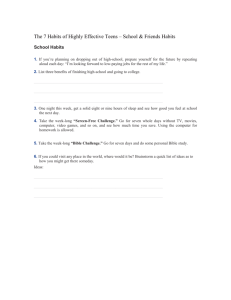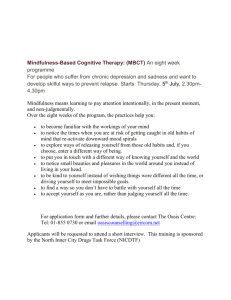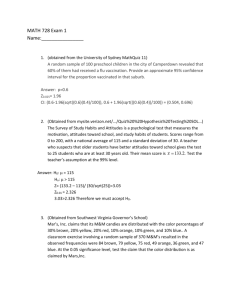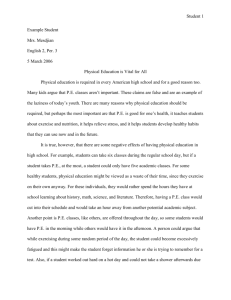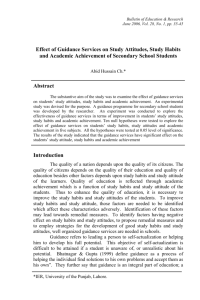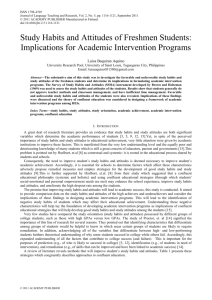20 habits of mind
advertisement
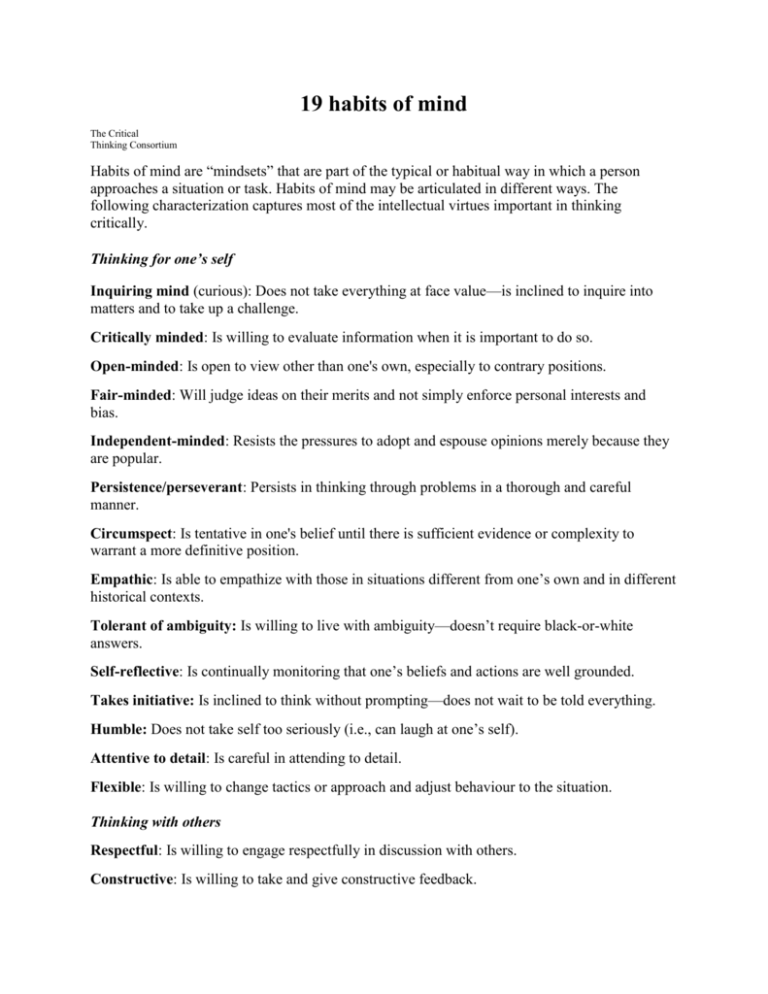
19 habits of mind The Critical Thinking Consortium Habits of mind are “mindsets” that are part of the typical or habitual way in which a person approaches a situation or task. Habits of mind may be articulated in different ways. The following characterization captures most of the intellectual virtues important in thinking critically. Thinking for one’s self Inquiring mind (curious): Does not take everything at face value—is inclined to inquire into matters and to take up a challenge. Critically minded: Is willing to evaluate information when it is important to do so. Open-minded: Is open to view other than one's own, especially to contrary positions. Fair-minded: Will judge ideas on their merits and not simply enforce personal interests and bias. Independent-minded: Resists the pressures to adopt and espouse opinions merely because they are popular. Persistence/perseverant: Persists in thinking through problems in a thorough and careful manner. Circumspect: Is tentative in one's belief until there is sufficient evidence or complexity to warrant a more definitive position. Empathic: Is able to empathize with those in situations different from one’s own and in different historical contexts. Tolerant of ambiguity: Is willing to live with ambiguity—doesn’t require black-or-white answers. Self-reflective: Is continually monitoring that one’s beliefs and actions are well grounded. Takes initiative: Is inclined to think without prompting—does not wait to be told everything. Humble: Does not take self too seriously (i.e., can laugh at one’s self). Attentive to detail: Is careful in attending to detail. Flexible: Is willing to change tactics or approach and adjust behaviour to the situation. Thinking with others Respectful: Is willing to engage respectfully in discussion with others. Constructive: Is willing to take and give constructive feedback. Inclusive: Seeks to include all participants. Accommodating: Is willing to compromise and to adjust thinking and behaviour to the situation. Consultative: Is inclined to seek several sources of information, solicit expert opinion and confer with others. Teaching the “global” habits of mind Key traits open-mindedness a habit or willingness to entertain new or different ideas and alternative ways of looking at people, places and events (opposite: closed-minded or rigid) full-mindedness a habit or inclination to make up one’s mind on the basis of adequate understanding of the whole story (opposite: simpleminded or simplistic) fair-mindedness a habit or inclination to give a fair hearing to alternative points of view—to judge on the basis of merit and not simply on personal interests or preferences (opposite: narrow-minded or prejudiced) recognizes differences in points of view entertains contrary positions Sample teaching strategies RAFTS (Role-AudienceFormat-Topic-Strong verb) Justifying my decision Thinking “yes” /Thinking “no” The “believing game” anticipates Going to the movie Web complexity recognize of effects Believe it or s not (Inuit) The stereotyping suspend Snaidanac s judgment when warranted empathizes with others overcomes bias (ethno-centrism, national fanaticism, presentism) “Smarties” Is it fair? Examining education in Japan Totally different/Totally similar Promoting habits of mind Our mind is a parachute. It works best when open. author unknown Volumes have been written on nurturing attitudes. Three broad approaches provide a helpful way of envisioning what teachers can do in this regard: 1 create classroom and school environments that reinforce desired habits of mind 2 facilitate direct experiences that powerfully evoke the desired habits of mind 3 engage students in thoughtful deliberation about their habits of mind. Creating classroom and school environments Attitudes do not develop in a vacuum. In fact, they are more likely to be nurtured by the subtle, yet pervasive, influences operating within a social environment than they are by short-lived instructional techniques. The literature on the hidden curriculum attests to the power of environmental conditions in supporting or inhibiting the acquisition of attitudes. For example, the tone or atmosphere in a classroom is overwhelmingly cited as a primary factor in developing social attitudes. Some studies report that the particular content of the curriculum is less influential in developing students' political attitudes than is establishing a classroom climate where students feel free and have opportunities to express their opinions. For these reasons, efforts at nurturing habits of mind must not be occasional add-ons, but rather they should pervade teacher behaviour, expectations and activities in the classroom and the school. Nurturing a climate that reinforces the desired habits of mind is not a one-time activity or even a short-term project, but an orientation that pervades all of our actions. We can transform our classrooms into communities of thinkers by working in four ways. • set appropriate classroom expectations sample expectations • students are assume onus for thinking about what is expected or required of them— not simply want to be told what to do; Two kind of questions What is asked of me? • students and teacher are expected as a matter of course to provide reasons or examples in support of their observations, conclusions and actions; Tell me why?” It goes without saying Opinions based in evidence/literature, not mere speculation

